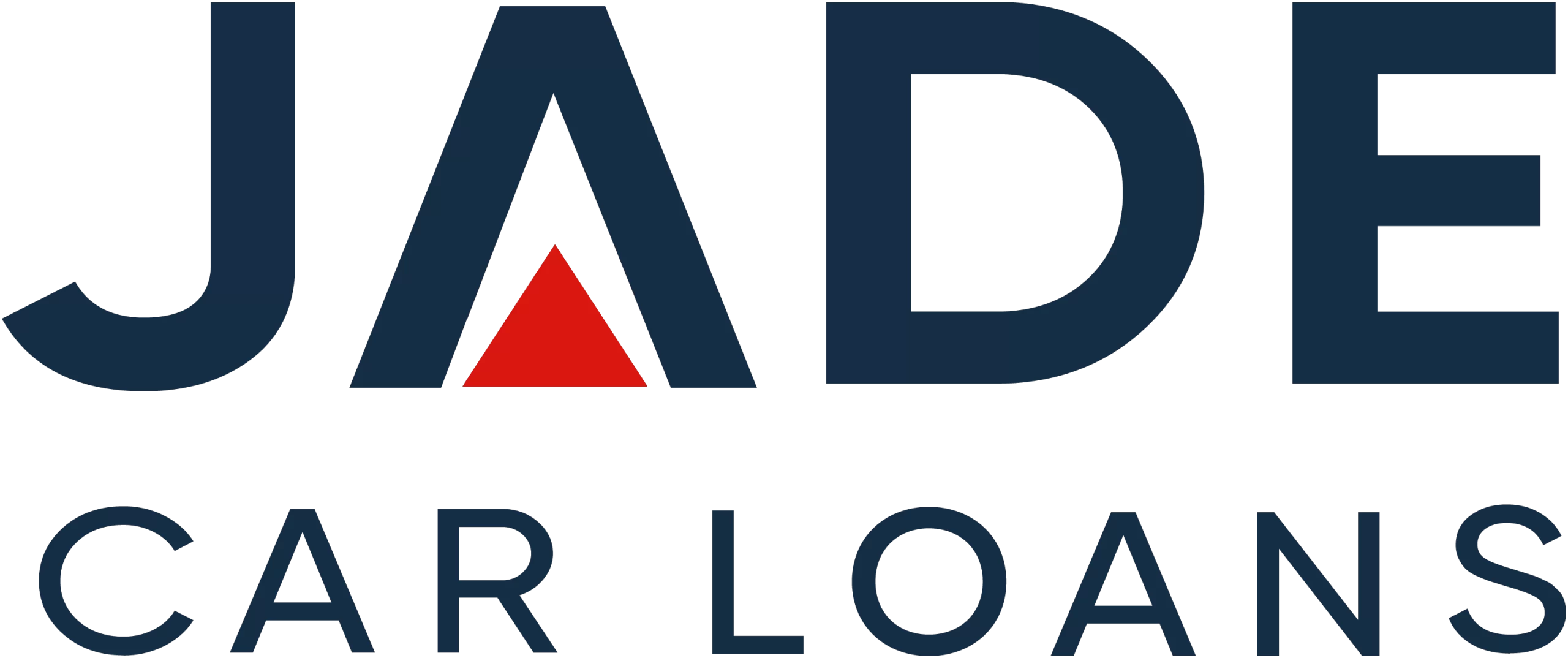Ask most people if they'd like to know more about accounting and their eyes will likely glaze over. Ask them if they'd like to know how they can achieve cost savings and tax benefits for their business and they're a lot more likely to pay attention. Sometimes it's all in the packaging or presentation. Knowing more about the accounting aspects of both your business and car finance, in general, may provide you with the tools to achieve better outcomes for your business.
When we talk business car finance products, at Jade Car Loans we always recommend that our customers refer to their accountant for specific advice about which product is best suited to their business. But by having more information yourself, having a better grasp of the basics, may assist you in better understanding the detail of your car finance deal.
Most companies have accounts software systems that automatically calculate and store information. In most cases, the business owner or their accounts manager only has to correctly enter the data and the software system delivers the outcome required. Outcomes such as GST or PAYG payable are easily worked out and their accountant handles the official end of month or end of year requirements.
Without doing the deep dive into ‘Accounting 101’, we’re providing a basic overview of the accounting implications of the different commercial finance facilities available for business vehicle purchases. Hopefully, this information will provide you with a better understanding of what and why your Jade consultant is asking you certain questions.
Accounting Methods: It’s all in the Timing
There are two different types of methods that businesses can use for their accounting purposes and essentially, the differences are timing. There is the Cash Accounting method and the Accruals method which is sometimes referred to as non-cash basis accounting.
The method is usually selected when a business is set up and the decision based on a number of factors which we won’t go into here. The method affects how and when you calculate GST and other tax obligations and the profit and loss statement. It also affects which car finance product is best suited to your business.
- Cash accounting records the income when it is received into your account and your expenses when you pay invoices and costs.
- Accruals accounting records income when you raise the invoice and when you receive an account or bill even if that money has not actually been paid or received yet.
The cash basis provides an immediate snapshot of your business situation at any particular moment. While the accruals or non-cash basis can provide a better ‘big picture’ or longer-term view of your business financial position. Accruals take into account what income you have owing plus what you owe.
Non-cash/accruals can be a more complex system to manage and may require personnel or expertise to handle your accounts receivable and account payable. As such, small operators tend to use the cash basis, which is commonly used by many Australian businesses.
For more information on accounting systems.
Finance Types and Accounting Methods
Knowing what accounting method your business implements is essential in determining the most suitable car finance product for your vehicle and other asset purchases:
- Chattel Mortgage is best suited to the cash accounting method
- Commercial Hire Purchase can be used for both cash and accounting methods
- Leasing is best suited to the accruals accounting method
Appreciating the Balance Sheet
When it comes to the balance sheet, many business owners are primarily focused on the bottom line – how much profit they are generating and how much cash at bank they have. But the business balance sheet plays an important role in regard to realising tax benefits from your car finance. Benefits which in turn deliver a better bottom line.
It’s all about whether or not the car being purchased is entered as an asset/liability on your balance sheet or the balance sheet of the lender. If it’s on your balance sheet then you realise the tax benefits of depreciation. If it is on the lender’s balance sheet then you can’t depreciate the asset.
- With Chattel Mortgage the car is entered on the balance sheet of the borrower and the business realises the depreciation benefits. This is important if you want to take advantage of government depreciation incentives such as the Instant Asset Write-Off and Business Backed Investment (BBI).
- Leasing is an off-balance sheet facility so the borrowing business can’t depreciate the asset. But, off-balance sheet finance offers benefits in possibly improving the balance sheet and the repayments are tax-deductible.
Again, it’s all about the timing! Either realising the tax benefits when the repayments are made or at end of the year with the depreciation allowance which is subject to ATO rulings.
There are also differences in regard to the treatment of GST in the different finance products.
Selecting Your Car Finance
Jade Car Loans offers a wide range of operational lending options for our business buyers:-
At the start of this article, we mentioned cost savings. Well, this is our top tip for achieving savings via cheaper car finance – secure your motor vehicle finance at the cheap interest rates offered by Jade Car Loans. A cheaper interest rate is the foundation to structure a more cost-effective overall finance deal.
To discuss cost-effective motor vehicle finance, contact Jade Car Loans at 1300 000 003
DISCLAIMER: INFORMATION, DATA AND DETAILS OF GOODS, POLICIES AND PROGRAMS THAT IS PRESENTED IN THE ARTICLE IS INTENDED SOLELY FOR THE PROVISION OF GENERAL INFORMATION. UNDER NO CIRCUMSTANCE IS THIS INFORMATION INTENDED AS THE PROVISION OF FINANCIAL ADVICE FOR ANY INDIVIDUAL AND/OR FOR THE PURPOSE OF MAKING SPECIFIC INDIVIDUAL FINANCIAL DECISIONS. FOR ADVICE ON INDIVIDUAL CIRCUMSTANCES, READERS SHOULD REFER TO A FINANCIAL ADVISOR. NO LIABILITY IS ACCEPT FOR ERRORS, INCORRECT DETAILS OR INCORRECT PRESENTATION OF DETAILS OF GOODS, PROGRAMS, SERVICES, ETC AS PRESENTED. THE INFORMATION HAS BEEN SOURCED IN GOOD FAITH AS GENERAL INTEREST AND INFORMATION FROM MANUFACTURER, SUPPLIER AND GOVERNMENT WEBSITES.


 " alt="">
" alt="">